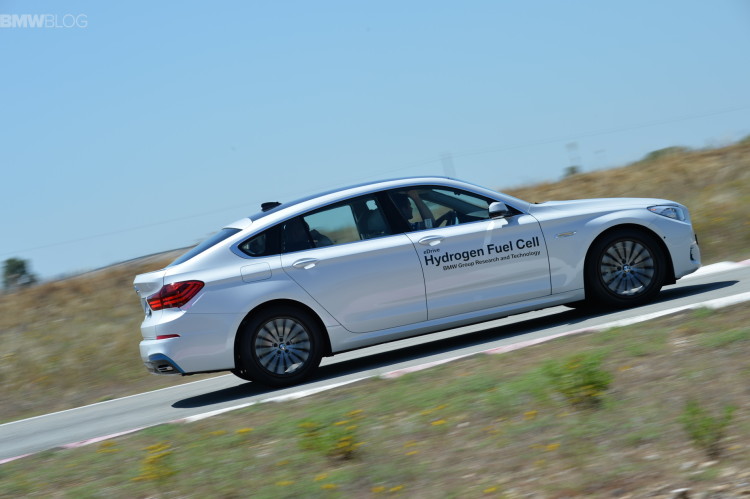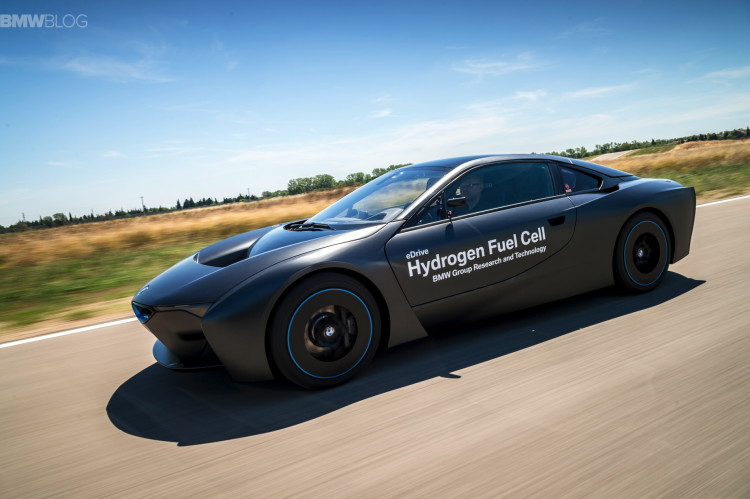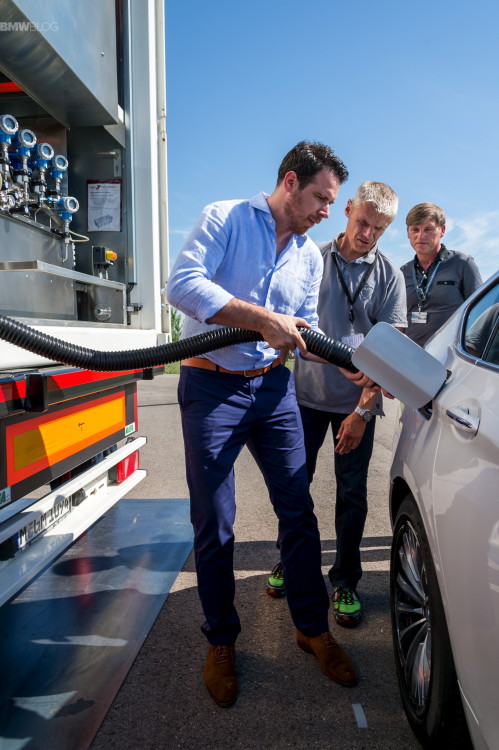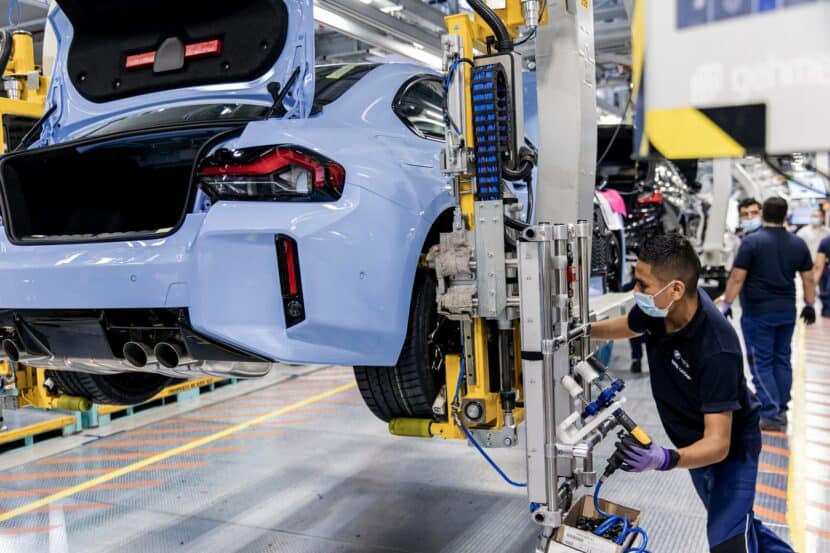BMW took quite a bit of flak from the EV-loyal crowd when it said that it would be heavily investing in hydrogen fuel. Most EV fans tend to think that hydrogen fuel is a waste of time and money and that those resources should be spent into pure battery electric vehicles. The reason for this opinion is that most people tend to think that EVs are the future and that hydrogen fuel is just a stopgap that will waste time and resources.
However, several automakers tend to feel otherwise, that hydrogen fuel is the best answer for right now.
It seems like they have a point, as hydrogen is the most abundant element in the universe, puts out zero emissions and can be refueled within minutes, just like a gasoline vehicle. A hydrogen vehicle gives us all of the benefits of electric vehicles – no emissions, far greater efficiency and a more sustainable future – as well as all of the benefits of a gasoline or diesel car – easy refueling, not having to pay for and install charging stations in your home. So with hydrogen vehicles, at least on the surface, it seems as though you can have your cake and eat it too.
Many people disagree, especially Tesla and its owner, Elon Musk. However, that isn’t stopping more and more automakers from jumping on board the hydrogen train. BMW, Toyota, Honda and GM are all already on board but now we’ve gotten word that Mercedes-Benz is in the mix.

According to a recent report from Autocar, Mercedes-Benz is planning a hydrogen fuel cell-powered variant of its brand-new GLC Class crossover. The GLC F-Cell, as Mercedes is currently calling it, is due to premier at the 2017 Frankfurt Motor Show and go on sale in 2018. Mercedes-Benz is also claiming that it will have quite a far range with fast refueling times.
“We are targeting a combined range for the fuel cell and battery of up to 600km [373 miles], along with a refuelling time for the hydrogen tanks of three minutes,” said Thomas Weber, Mercedes-Benz’s Head of Research and Development.
There were early reports of Mercedes-Benz creating a hydrogen variant of the current B Class electric vehicle. However, due to cost purposes, Mercedes is forced to utilize a more upscale vehicle for its first ever hydrogen fuel cell car.
“The technology has matured greatly in recent years, with improved packaging and efficiency, but it remains in its infancy and is still quite expensive by conventional driveline standards,” according to Weber.

There is much debate over whether or not hydrogen is the current answer. All of us armchair engineers can sit back talk about what we think we know, but at the end of the day, automakers are going to do what’s best for them and the industry as a whole. So if automotive giants, like BMW, Toyota and Mercedes-Benz are heavily investing in the technology, there’s got to be a good reason for it. Clearly BMW isn’t foolish for spending its resources on hydrogen fuel technology, as its competitors are doing exactly that as well. Even if hydrogen isn’t the be-all-end-all answer, if the other carmakers are doing it, BMW can’t be the only carmaker at the party without one.
[Source: Autocar]






































































